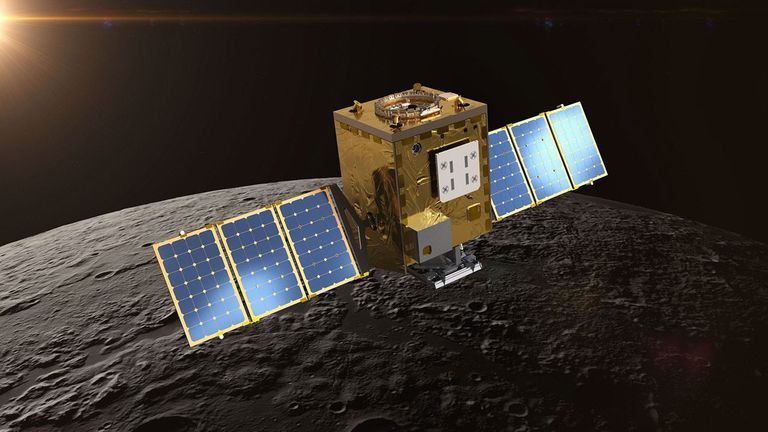Smoke knows no boundaries: What Canada’s fires mean for the U.S. in the future
Paige Fischer was driving to the picturesque Traverse City region along Lake Michigan for a family vacation. But even as she was leaving her home in Ann Arbor this week, the smoke from massive wildfires in Canada’s northern boreal forests was already evident.
Fischer, who as a professor of environmental sustainability at the University of Michigan, understands better than most what she and her family were getting themselves into.
“Even though I study this, I haven’t completely caught up in terms of planning ahead to make sure there’s good filtration systems where I’m staying,” she acknowledged. “But I definitely have masks with me.”
As of Thursday, the Canadian Interagency Forest Fire Center said 201 fires are burning right now in British Columbia, Alberta, Saskatchewan, Manitoba and Ontario, with fully half of them considered “out of control.” While Canada is busy fighting fires, residents of the U.S. Midwest — especially in Minnesota, Wisconsin and Michigan — are being forced to contend with the thick smoke.

While tens of thousands of Canadians have had to flee their homes in scenes reminiscent of what has occurred in recent years in California, the U.S. Environmental Protection Agency’s AirNow page is showing air quality moderate to unhealthy throughout a large swath of the U.S., with the worst conditions in Wisconsin, Illinois, Michigan and Indiana.
Fischer says we’d all better get used to it. The hotter, drying conditions that come with climate change are making these annual fires across North America, and in other parts of the world, the new norm.
“Wildfires are happening more frequently. They’re getting bigger. They’re emitting more smoke,” Fischer says. “The climate models are projecting that we’re going to have more frequent, more severe wildfires.”
Lori Daniels, a forest ecologist and professor at the University of British Columbia (UBC) who specializes in wildfire science, agrees. “Smoke knows no political boundaries — and neither does fire,” she says. “The wind patterns have taken that smoke kind of from the northwest across a big diagonal. And that’s why you’re getting so much smoke down in the United States.”
Canada and the U.S. are seeing a virtual repeat of 2023, when smoke from wildfires from some of the same regions lingered over the U.S. Midwest for days.
“We are again having a remarkable start to fire season here in Canada,” Daniels says. “Like the U.S., we’ve been struggling with these really mega fires that have huge consequences for our ecosystems and for our human communities … we’re all struggling with this, not just in Canada and the United States, but worldwide.”

John Smol is a biology professor at Queen’s University in Ontario who studies long-term environmental change. He says most people think forest fires are sparked by carelessness, such as a discarded cigarette. Not true, he says. Most are sparked by lightning. “To have a big forest fire … you need fuel, you need a spark, and you need fuel that’ll burn. If it’s hot, dry, and you didn’t have summer rains — and you get a lightning strike — that’s it,” he says.
Even for the people not driven from their homes, the effects of these fires can be harmful. According to the EPA, exposure to high concentrations of wildfire smoke “can cause persistent coughing, phlegm, wheezing, and difficulty breathing. Even in healthy people, exposures to fine particles can potentially lead to transient reductions in lung function, and pulmonary inflammation.”
Fischer says unless people are paying close attention to the news, they might not know where the smoke is coming from. “They have a hard time conceiving of wildfire smoke from Canada coming here. They might not take measures to protect their health,” she said.
People in the U.S. shouldn’t be too quick to criticize Canada when it comes to wildfires, Daniels says. She notes that the worst air quality conditions ever measured in Vancouver, where she lives and works, were in 2020 — and that was due to California wildfires that year.
Still, Daniels expresses sympathy to anyone in the U.S. who’s being impacted. “We’re sorry about the smoke,” she says.
Deadline looms as Anthropic rejects Pentagon demands it remove AI safeguards
The Defense Department has been feuding with Anthropic over military uses of its artificial intelligence tools. At stake are hundreds of millions of dollars in contracts and access to some of the most advanced AI on the planet.
Hillary Clinton calls House Oversight questioning ‘repetitive’ in 6 hour deposition
In more than seven hours behind closed doors, former Secretary of State Hillary Clinton answered questions from the House Oversight Committee as it investigates Jeffrey Epstein.
Chicagoans pay respects to Jesse Jackson as cross-country memorial services begin
Memorial services for the Rev. Jesse Jackson Sr. to honor his long civil rights legacy begin in Chicago. Events will also take place in Washington, D.C., and South Carolina, where he was born and began his activism.
In reversal, Warner Bros. jilts Netflix for Paramount
Warner Bros. says Paramount's sweetened bid to buy the whole company is "superior" to an $83 billion deal it struck with Netflix for just its streaming services, studios, and intellectual property.
Trump’s ballroom project can continue for now, court says
A US District Judge denied a preservation group's effort to put a pause on construction
NASA lost a lunar spacecraft one day after launch. A new report details what went wrong
Why did a $72 million mission to study water on the moon fail so soon after launch? A new NASA report has the answer.







